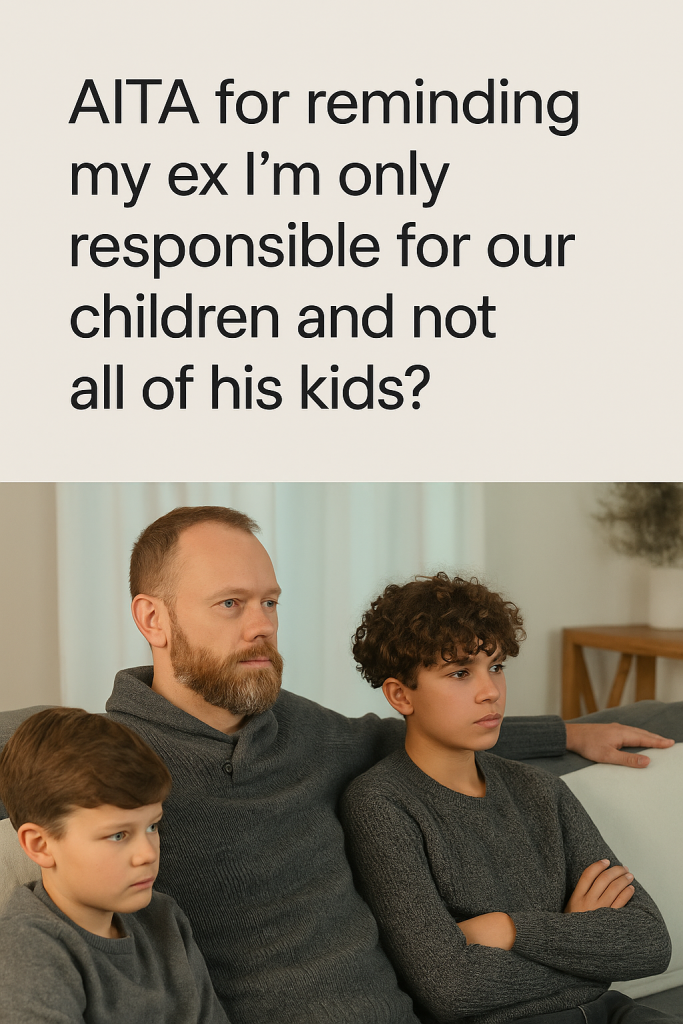In an era where blended families and co-parenting challenges are increasingly common, a recent social media post has sparked a heated debate about parental responsibility and the limits of support between ex-partners. The discussion centers around a woman who publicly questioned whether she was wrong for reminding her ex that she is only responsible for the children they have together—not all of his children from other relationships.
The post, which quickly gained traction, described a scenario involving an ex-couple and their children, alongside other kids the man is responsible for. According to the poster, her ex-partner criticized the items she purchased for their children—suggesting she should be providing for his other children as well. This led her to assert boundaries, emphasizing that her obligation is solely toward their shared offspring, a stance that ignited varied reactions across social media platforms.
The Core of the Controversy
From the limited context of the discussion, the woman explained that she had bought something for their children, after which the ex made a comment indicating dissatisfaction because the purchase did not extend to his other kids. Feeling unfairly burdened, she responded by clarifying that her responsibility is exclusive to the children they parent together.
Many social media users empathized with her, reinforcing the idea that while blended families often require cooperation, financial and emotional responsibilities are generally divided based on legal and personal arrangements. On the flip side, some users argued that as the children belong to the same father, support should be extended more broadly, especially if the new households are connected.
“It’s important to respect your own limits as well as the realities of blended family dynamics,” commented one user. Another weighed in, “We need to consider each family’s situation individually—what works for one might not for another.”
Legal and Social Perspectives
Experts and commentators note that legal obligations typically bind parents to their biological or legally adopted children. The responsibility of supporting children from other partners usually falls on the other respective parent, unless formal custody or financial agreements state otherwise.
However, social expectations can differ greatly. In families with multiple parents and children, co-parenting arrangements can become complex, especially if there are differing views on financial contributions and caregiving roles. Psychologists emphasize clear communication and defined boundaries as key to maintaining healthy relationships in blended families.
Why This Story Resonates
The post’s viral nature highlights how the boundaries between personal responsibility and collective family care are often blurred in modern family structures. Many individuals navigating co-parenting arrangements find themselves needing to clarify roles to avoid misunderstandings and unfair expectations.
As blended families continue to rise, public conversations such as this provide valuable perspectives on the emotional and practical challenges faced by parents. It underscores the importance of mutual respect, clearly defined responsibilities, and the need to tailor agreements to what each family can reasonably support.
In Conclusion
This AITA (Am I The Asshole) debate shines a light on the complexities of co-parenting beyond just the immediate biological connection. While some viewers side with the woman for maintaining her boundaries, others caution about the broader implications for family unity and shared responsibilities.
Ultimately, the post serves as a reminder that in today’s diverse familial relationships, clarity, fairness, and respect remain essential elements for successfully navigating parental roles. Whether this woman was right to remind her ex of her limited responsibilities remains subjective but undeniably sparks important dialogue about parenting dynamics in blended families.



